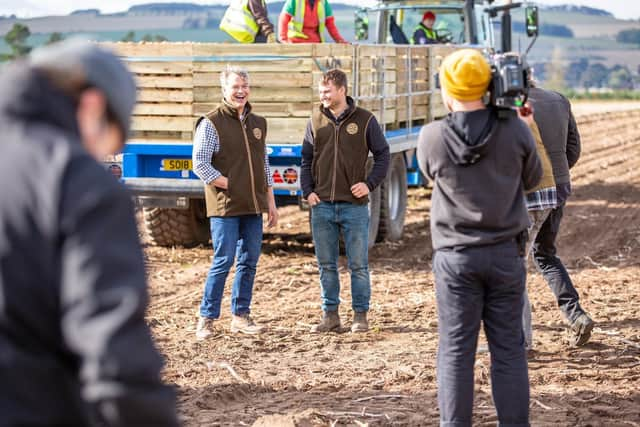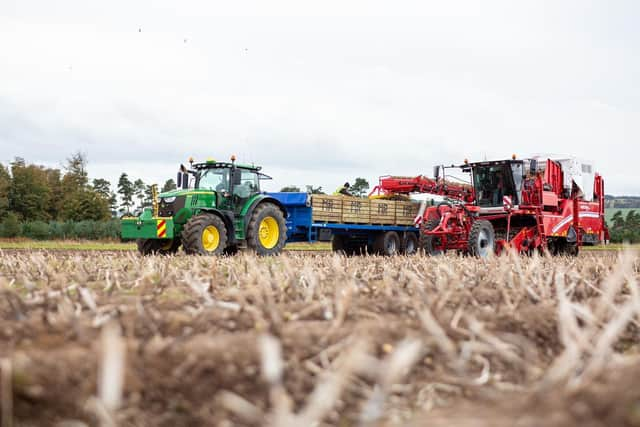Wooler firm Particularly Good Potatoes makes commitment to carbon neutral path
and live on Freeview channel 276
Particularly Good Potatoes supplies top-quality fresh chips and potato products to many bistros, restaurants, and chip shops.
Now, the company is now embracing a new chapter by actively pursuing carbon neutrality and sustainable agriculture.
Advertisement
Hide AdAdvertisement
Hide Ad“From the way we farm the soil, right through to our packaging, we are committed to implementing comprehensive measures that address our environmental impact throughout the entire supply chain,” explains Mark Robson, founder of Particularly Good Ltd.


“Today, we proudly announce our commitment to the path of carbon neutrality. Particularly Good Ltd has always been dedicated to delivering top-quality produce, and now we are extending that commitment not only to the environment, but to the planet.”
The fields where the potatoes are grown aren’t ploughed, ensuring the soil structure stays in place and carbon is kept in the ground. Cover crops are also planted in the fields to capture carbon, nitrogen and maintain the condition of the soil.
Looking ahead, there are also plans to add in another 4,820m (3 miles) of new hedgerows, in addition to the existing 22 miles of hedgerows already planted. This will help to support the diverse pollinators that are essential for crop pollination and crop yields.
Advertisement
Hide AdAdvertisement
Hide AdIn terms of practices on site, the water for washing potatoes goes through a full cycle. It is first supplied by a borehole on site, then the used water is stored in a holding tank to allow sediment to sink. The sediment is then spread on the fields, saving the use of human-made fertiliser. Any other solids are then fed to cattle.


Maintaining habitats, recycling, reducing effluent and staff involvement are other areas of focus.
“Currently, there is an equivalent of 2,000,000 tonnes of potatoes imported into the UK from other countries,” explains Mark. “More specifically, the same variety of potato that we produce here is imported from Egypt. 100% of our produce is grown by us, therefore, it’s important that we make our own improvements where possible, including where our potatoes are sourced from.
“This journey towards carbon neutrality is not only an investment in the environment, but also a testament to our responsibility as stewards of the land.
“Our overall aim is to set an industry standard for environmentally responsible farming.”